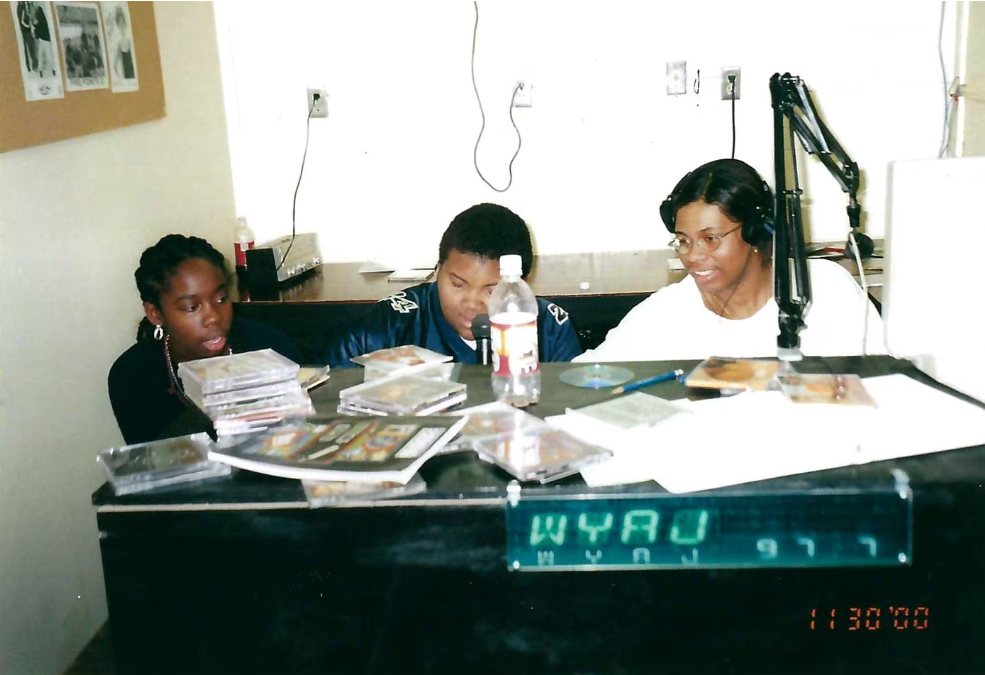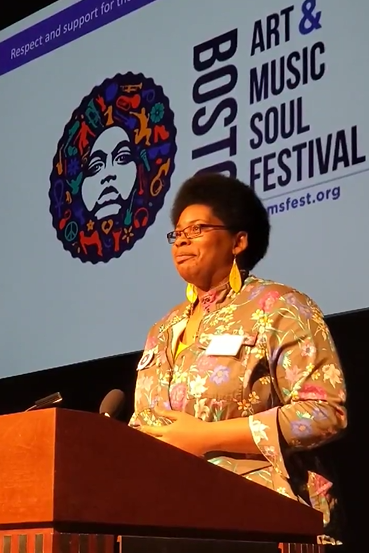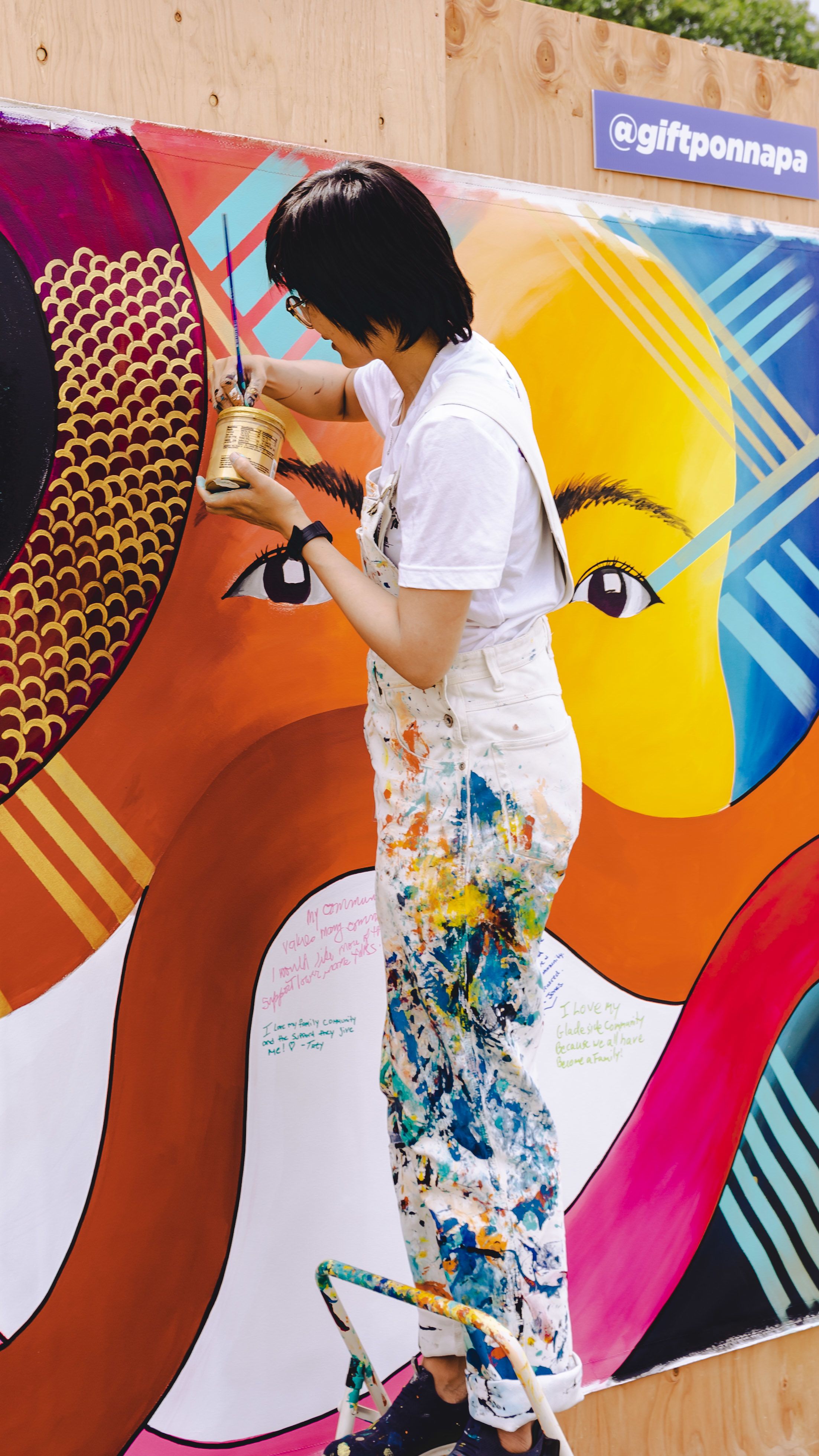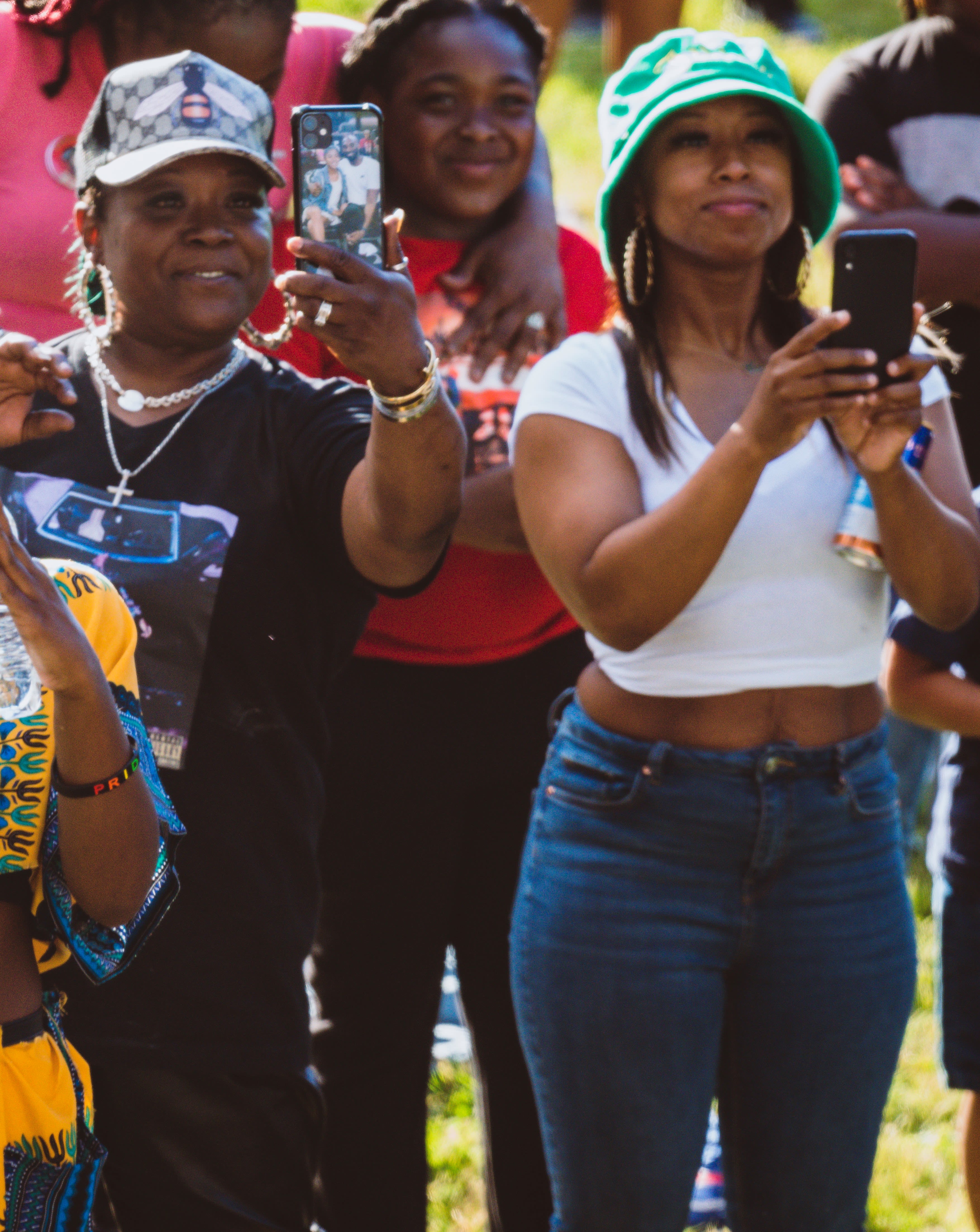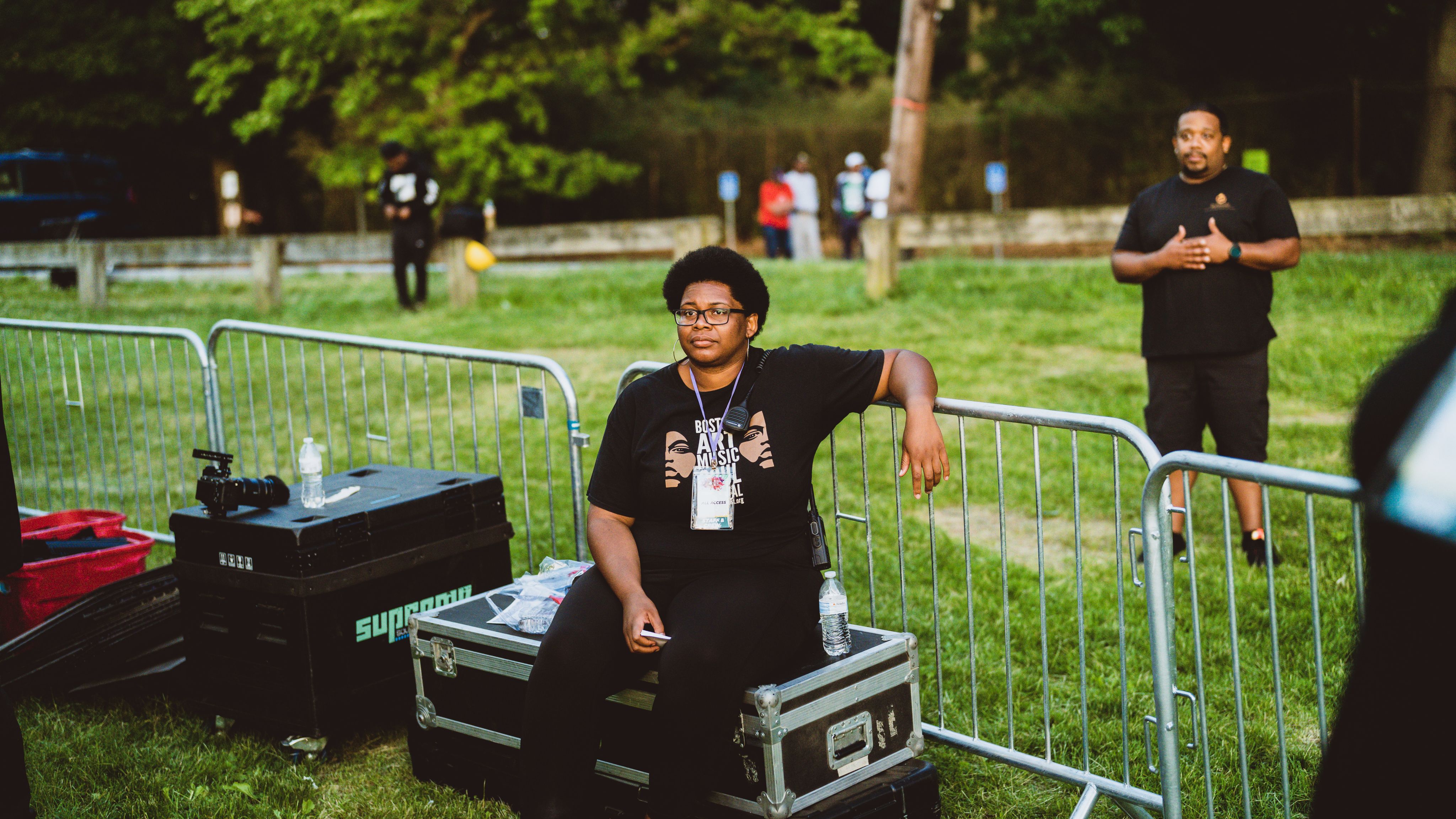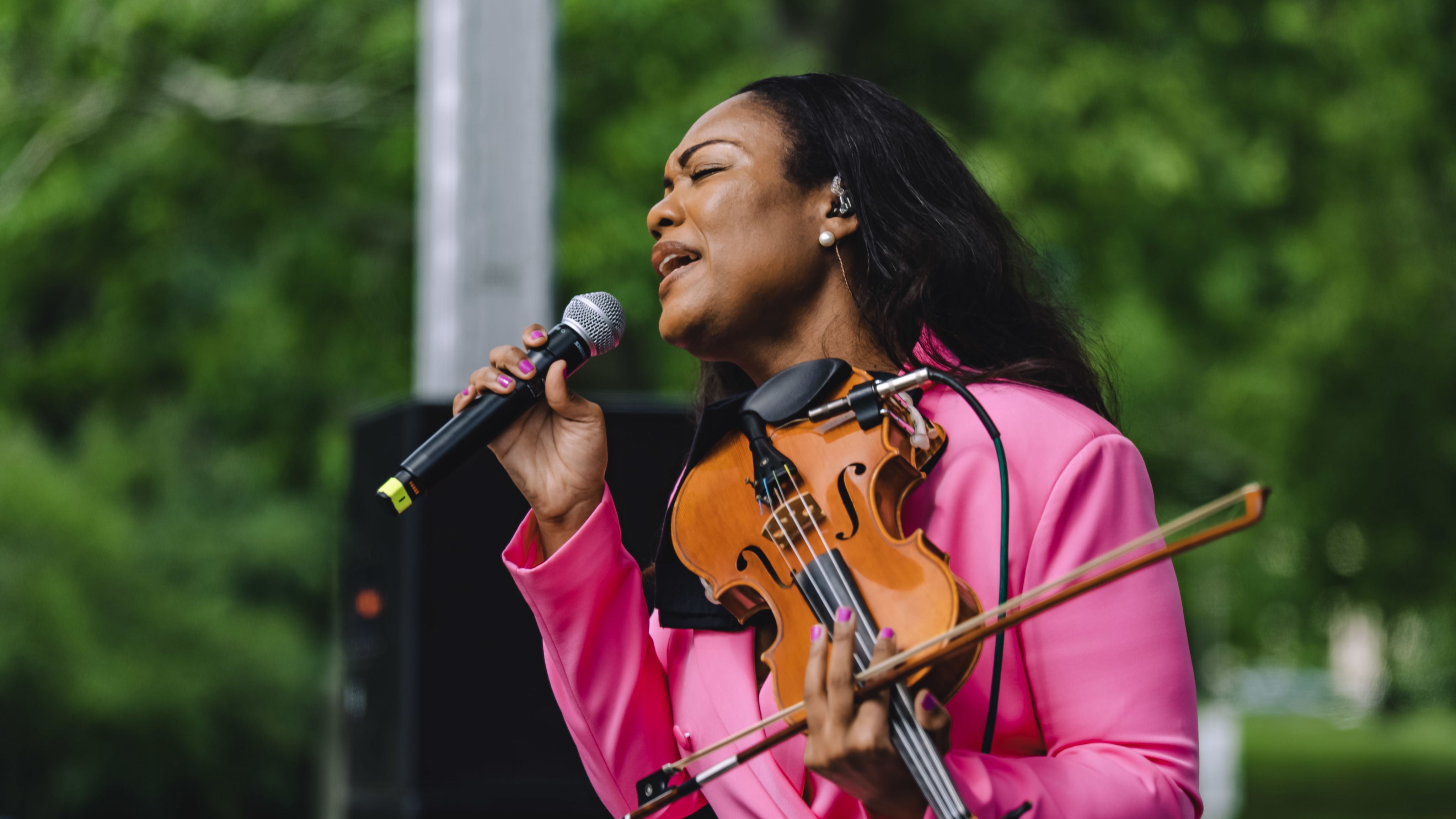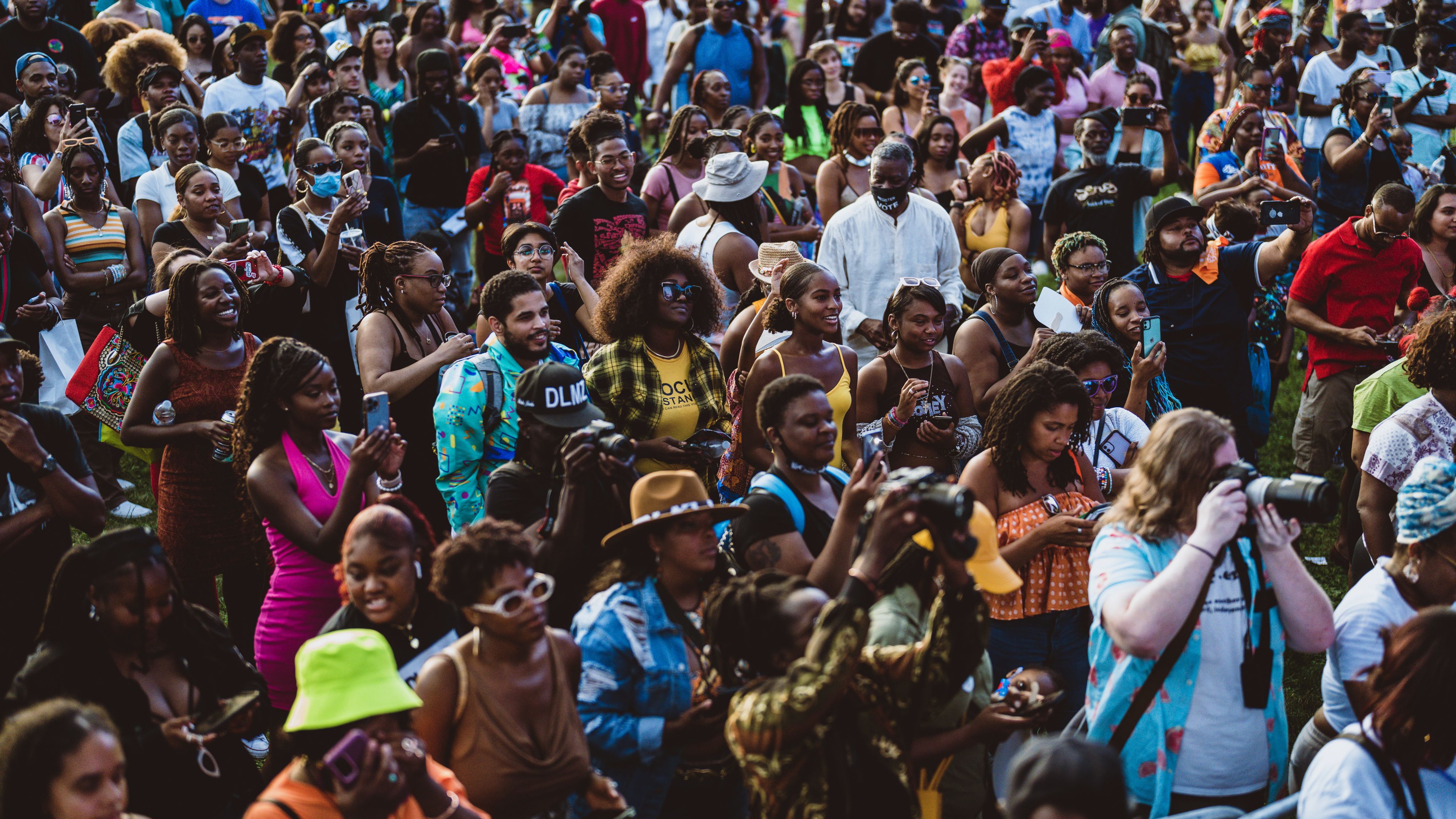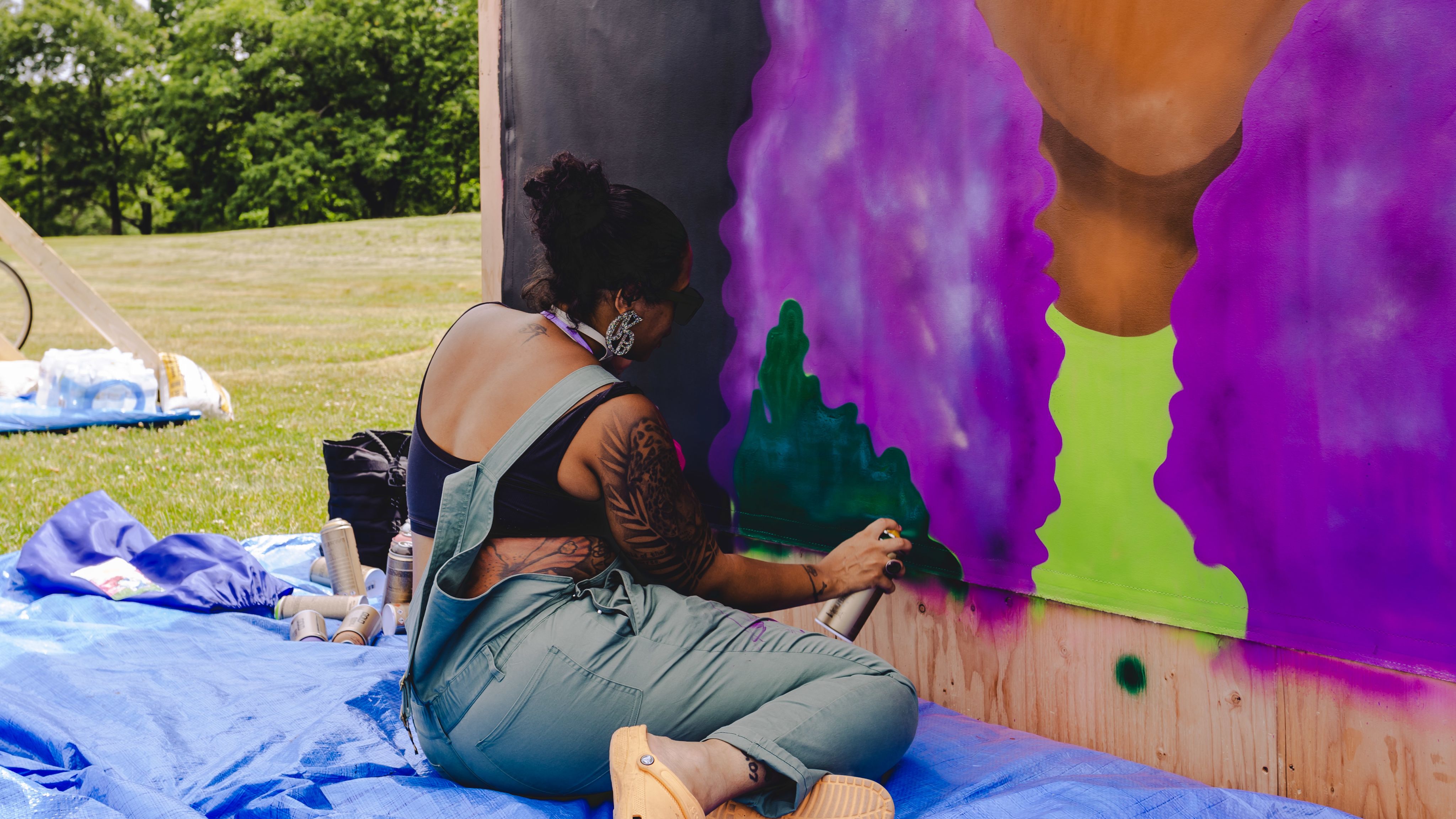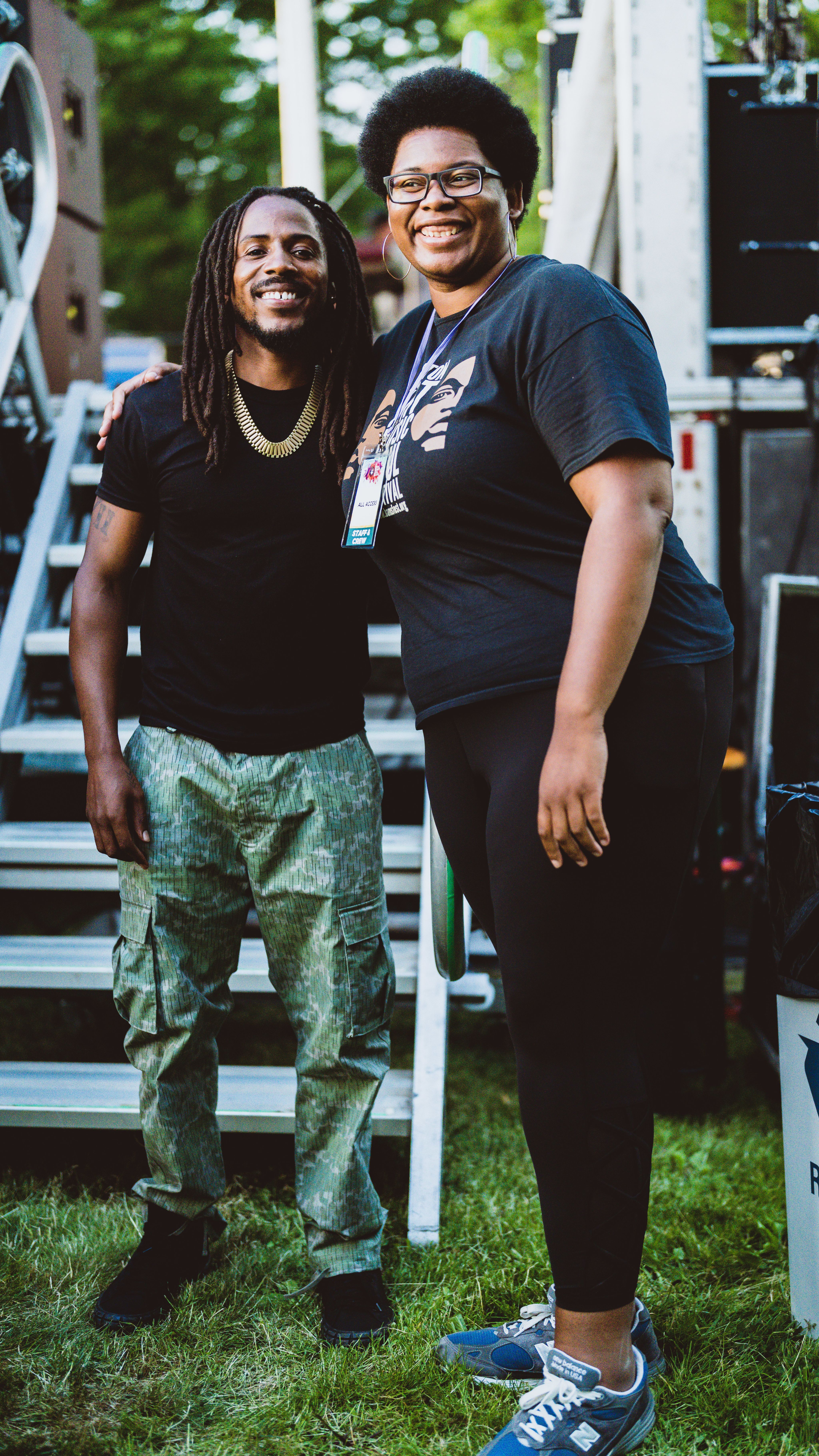From Concerts to Cultural Movements: The Evolution of Catherine Morris and BAMS Festival
Catherine Morris, STH ’08, had a passion for event management before she even knew what it was called. From taking the helm at middle school talent shows, to interning with Philadelphia’s major concerts and events, she became enamored with showcasing Black and Brown voices, perspectives and artistry. However, after graduating, Catherine returned to her hometown to learn that these opportunities didn’t exist. When she created the nonprofit Boston Art & Music Soul (BAMS) Fest, she created more than just a festival; it became a cultural movement.
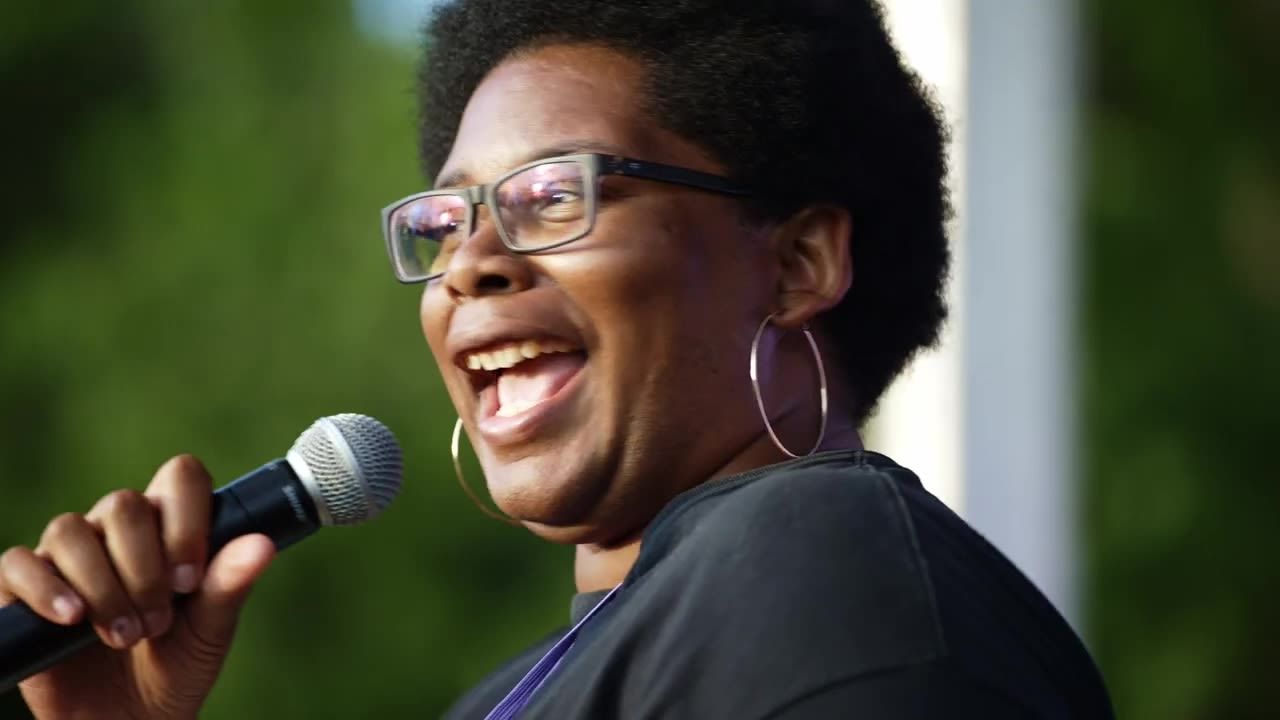
While Catherine Morris, STH ’08, grew up in Boston’s inner city, she quickly became exposed to a new environment after being selected for the Metropolitan Council for Educational Opportunity (METCO) Program, which focused on sending urban children to suburban schools for further education. For almost 12 years, Catherine woke up at 5 a.m. to board a bus toward new possibilities and new challenges. “Learning socialization as a young Black woman was a profound experience. I had to learn about cross-cultural communication, code-switching and dealing with micro- and macroaggressions, prejudices and stereotypes from 2nd grade to high school,” says Catherine. These experiences left her wishing to create a platform for people of color and a bridge to showcase it to the world.
Catherine’s middle school days came at the height of Black entertainment, with dance videos featuring artists like Salt-N-Pepa, Missy Elliott and Aaliyah dominating our television screens, and she dreamed of finding a way to showcase her culture to her predominantly white school. That’s when she convinced her teachers to let her teach a for-credit, elective hip-hop dance class in preparation for the annual talent show. After a successful event that 500 kids and their parents attended, Catherine continued in talent shows in school and at the Boys and Girls Club of America. Over time, she learned to produce entire events, from auditions to promotions.
“Though exhausting, I wanted to do it forever. No one told me it was called event management. I just knew it was a talent show, but my vision became clear toward “the arts,” constantly creating, collaborating, making opportunities for my peers and pushing them to be different,” says Catherine.
After high school, Catherine studied radio at Winston-Salem State University in North Carolina but transferred to the Temple Klein School of Media and Communication, seeking a bigger academic challenge closer to home. After reading about Professor Joe Goldblatt, she rekindled her childhood passion and moved to the School of Sport, Tourism and Hospitality Management to study under his direction in his last year before retiring from Temple. She also found amazing internships where she was embraced and nurtured into the world of large-scale events.
“Temple had amazing professors, and so many different people shaped my experience. I did every internship that became available to me, but I never worked in hotels. I applied for several, but I was denied because I had a big Afro and was unwilling to compromise my crown. I focused on events, found amazing communities, and decided I wanted to do this for the rest of my life,” says Catherine.
Three internships in particular changed her life. One was fundraising for the Rhythm and Blues Foundation, which focused on providing medical support for artists over 60. In addition to the knowledge she acquired, she met legends like Paul LaBelle and Teddy Pendergrass, and it led to her next internship at the Philadelphia Film Society where with limited funds, she was challenged to produce 25 special events within three months of their largest festival. Catherine simultaneously completed an internship with the City of Philadelphia, where she tackled everything from production and programming to sponsorship and operations during the Welcome America Festival and The Roots Picnic. These experiences cemented her love for the “organized chaos” of festival management. “It’s essentially trying to build a city within a city with safe spaces and basic services while also having fun,” she says.
After graduation, Catherine returned to Boston and realized what she experienced in Philadelphia didn’t exist. “Being immersed in Philadelphia’s culture gave me hope of what was possible in my hometown. There was no fun, we didn’t have a soul and we lacked humanity. I knew we had to work to be a better sister city,” she says. The injustices driving away artists of color also motivated her. “People of color did not own the spaces and properties, and the festivals that existed exclusively did not include artists of color, so I realized this was my moment to support Black and brown creatives,” says Catherine. She then pursued her master’s degree in management at Simmons University, where she wrote a mock business plan for Boston Art & Music Soul (BAMS) Fest. After winning a campuswide pitch competition, she knew she had to make BAMS a reality.
She built every follower, supporter and attendee organically, put $22,000 of her savings into the organization and started BAMS Fest in September 2015 with four artists and over 100 attendees. BAMS Fest now has over 600 Black entrepreneurs and over 50,000 attendees, making it the go-to organization for sourcing Black talent. While Catherine found the success she’d been hoping for, this didn’t come without obstacles along the way.
“No one believed Boston could scale a Black-led festival. Boston has had some beautiful community concerts, but I wanted to show a complete arc of Black creativity, not just music, dance or visual art, but chefs, tech entrepreneurs and other creative enterprises pushing the envelope from every neighborhood, led and structured by people of color to support the entire Black art ecosystem,” says Catherine.
She had to build momentum and show people that BAMS Fest was possible in order to garner support and funding. She told her story repeatedly and sold the vision she wholeheartedly believed in to anyone who’d listen. She knew what she had was more than a festival; it was a movement. “Those who didn’t see the vision thought it was just another community event. This thing is about to change the world. I’m just starting here in Boston,” she says.
Conveying her vision and passion allowed her to build partnerships and break down doors that haven’t been opened in decades, and today the festival is beyond her wildest dreams. Her biggest joy comes from seeing Black people reconnecting and discovering themselves through her programming recipe of “edutainment.” Catherine notes that the entertainment is the icing, but the education is a vital ingredient to ensuring all BAMS Fest and year-round programming attendees walk out of the experience more knowledgeable, connected and hopefully a fundamentally changed person. This includes providing mutually enriching interactions between artists and audiences and multiple opportunities for artists to be seen beyond their creative practice, including panels and workshops.
“Artists aren’t monolithic; they’re multihyphenate, and we need to showcase that to bring them to the level of success we want to see,” says Catherine.
Catherine is more than an event planner and curator; she continuously fights to grow BAMS Fest and further amplify Black voices, despite opposition. She holds a heavy torch so the next generation can have it lighter. Behind the scenes, she’s also challenging elected officials about how they make decisions and standing on the front lines of Black and Brown equity to fight for fair city processes and support for the arts. After facing permit and insurance challenges, she notes that “the hip-hop police are real” and highlights the inequities of building a Black-led festival.
“On top of creating artist opportunities, I’m creating spaces for Black and Brown people to learn, grow and simply exist. My role as founder and artistic director is great but, at the core of it, I’m a public servant. I just chose the arts because it brings me joy and beautiful headaches at the same time,” she says.
Catherine, who holds about 160 roles with BAMS, just hired her first two full-time employees and aims to give artists greater agency to lead the festival and recruit more passionate people to join the mission while adding something to it. “The festival and organization are not just my vision anymore. I planted a seed. But how that seed grows takes community effort, so everyone’s got to be at the table,” she says. The next step in the mission is expanding the creative ecosystem across the Commonwealth of Massachusetts and its state lines to help the larger New England region find and create opportunities.
Catherine credits Philadelphia for inspiring her vision and Temple for giving her the opportunities to unapologetically walk in her creativity while becoming prepared for the level of hard work necessary to do so. Up until last year, BAMS was volunteer-run and while it’s been exhausting, Catherine notes that providing opportunities for artists and creative entrepreneurs is her greatest mission. She’s also building what she calls BAMS University, which educates artists to run their businesses, collaborate with others and become fully active citizens in their community to change laws and policies that affect their quality of life. BAMS Fest will run June 22–24, 2023. For more information, please visit bamsfest.org.
“Supporting BAMS Fest means investing in racial and social change, program accessibility, spatial justice, economic and creative workforce development, and the healing power of art that brings us together, regardless of our differences,” says Morris
Temple alumni bravely pursue their biggest ideas and transform them into Temple Made businesses that defy expectations and shake up the rules of the game. To learn more about Temple Made businesses or list your own business, visit the Alumni Owned Business Directory today!

